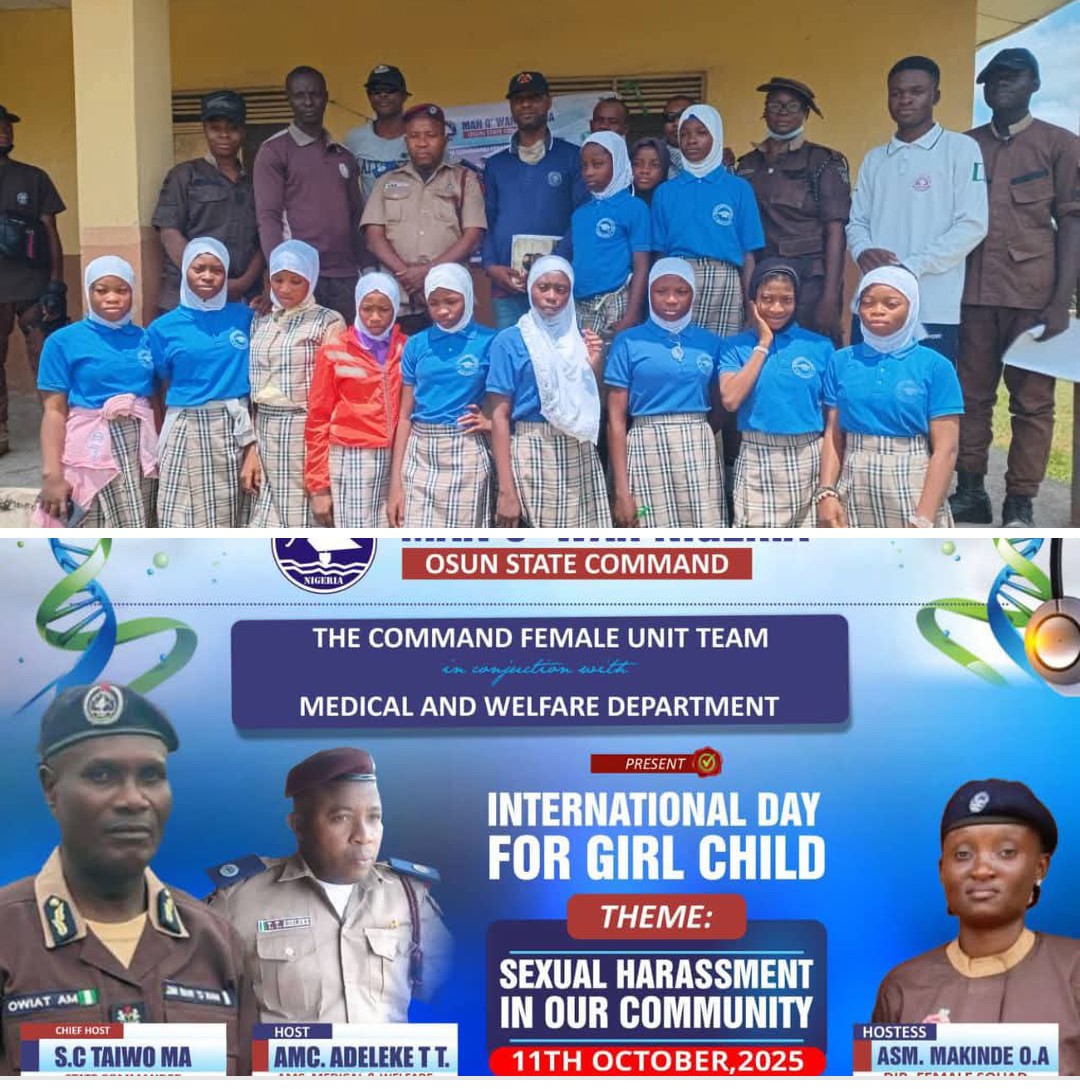Sexual harassment remains a silent epidemic in our community, invading workplaces, schools, homes, and even religious spaces. As noted in the speech made by AMC. Adeleke Taiwo T., Head, Medical and Welfare Unit, Osun State Command, sexual harassment is defined as “any form of unwanted verbal, nonverbal or physical conduct of a sexual nature that occurs with the purpose or effect of violating the dignity of a person, in particular when creating an intimidating, hostile, degrading, humiliating or offensive environment.” This definition highlights that harassment is not just about actions but about the impact those actions have on individuals.
The report explains that the key element of sexual harassment is that it is unwelcome, regardless of the intent behind it. “The blame lies entirely with the perpetrator,” Adeleke emphasizes, countering the common misconception that victims are simply being overly sensitive. Whether through sexually suggestive jokes, unwanted touching, or sending explicit images, harassment manifests in many ways, and each instance carries serious consequences. Victims can be of any gender or age, and perpetrators range from colleagues and supervisors to clients or even classmates.
Sexual harassment can occur anywhere—not just in the workplace or schools, but also in online spaces like social media, messaging apps, and even inside the home. The report states: “It includes unwanted sexual advances, requests for sexual favors, offensive jokes, intrusive comments, unwanted touching, and even sexual assault.” This broad scope shows the urgent need for communities to wake up to the reality that sexual harassment is not rare or isolated it is pervasive and destructive.
One of the root causes, according to the report, is power imbalance. “The core of sexual harassment lies in the abuse of power,” Adeleke writes. Whether it’s a manager pressuring an employee or a lecturer targeting a student, the abuse of authority is a common thread. In addition, societal norms that tolerate sexism, traditional gender roles, and the culture of silence all contribute to a system where victims feel unsafe to speak up, and perpetrators act with impunity.
The effects on victims are devastating. The report outlines how many suffer from “anxiety, depression, PTSD, and sleep disturbances,” and even experience physical symptoms like headaches and stomach issues. In severe cases, victims may withdraw socially, develop substance abuse issues, or quit their jobs or education due to the trauma. These effects don’t just harm individuals they affect productivity, relationships, and the larger economy.
The report also highlights the importance of understanding the 5Ds of bystander intervention: Direct, Delegate, Delay, Distract, and Document. These are practical tools individuals can use to safely intervene or support someone facing harassment. For instance, a witness can choose to distract the perpetrator, check in with the victim afterward, or report the incident themselves. Adeleke stresses: “Silence enables harassment. Intervention can help prevent it.”
To combat this crisis, Taiwo recommends organizations and institutions take a firm stance by implementing anti-harassment policies. These policies must include “clear definitions, multiple reporting channels, and a zero-tolerance approach.” Employees and students must be trained regularly on how to recognize and respond to harassment, while leaders are urged to model respectful behavior and establish a culture of accountability.
Equally important is the need for confidential reporting systems. Victims must feel safe to report without fear of retaliation. The report advises: “Offer various channels for reporting incidents, including options for anonymous reporting. Ensure that reports are handled confidentially and sensitively.” When victims are supported and heard, it sends a clear message that the community stands against abuse.
In conclusion, Taiwo Adeleke calls for a collective response: “Combating sexual harassment requires fostering a culture of respect, inclusivity, and accountability.” Everyone from parents to pastors, teachers to tech users has a role to play. By educating ourselves, supporting survivors, and holding perpetrators accountable, we can create a community where safety and dignity are not privileges, but rights for all.





